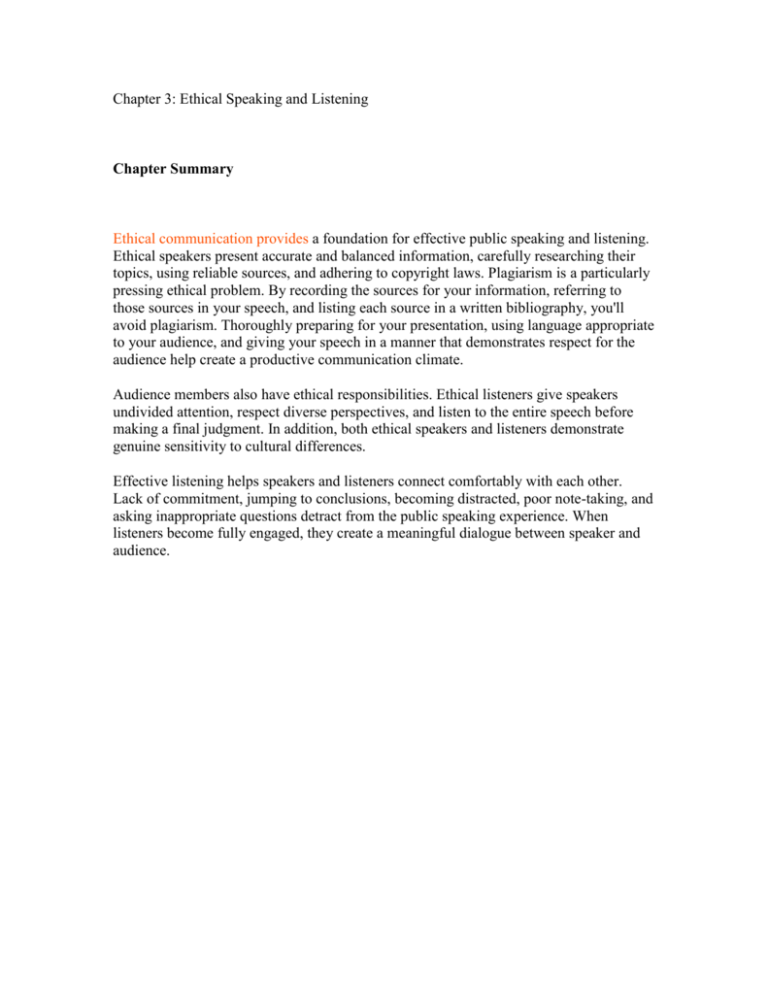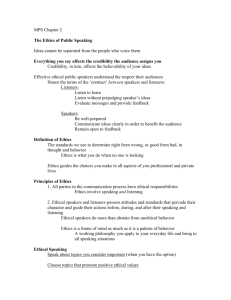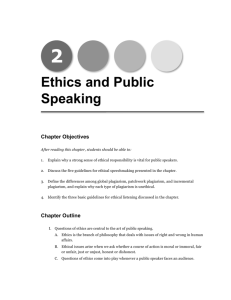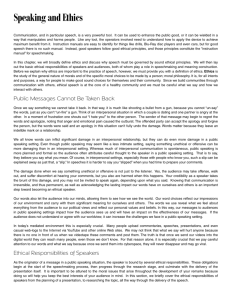Chapter 3: Ethical Speaking and Listening
advertisement

Chapter 3: Ethical Speaking and Listening Chapter Summary Ethical communication provides a foundation for effective public speaking and listening. Ethical speakers present accurate and balanced information, carefully researching their topics, using reliable sources, and adhering to copyright laws. Plagiarism is a particularly pressing ethical problem. By recording the sources for your information, referring to those sources in your speech, and listing each source in a written bibliography, you'll avoid plagiarism. Thoroughly preparing for your presentation, using language appropriate to your audience, and giving your speech in a manner that demonstrates respect for the audience help create a productive communication climate. Audience members also have ethical responsibilities. Ethical listeners give speakers undivided attention, respect diverse perspectives, and listen to the entire speech before making a final judgment. In addition, both ethical speakers and listeners demonstrate genuine sensitivity to cultural differences. Effective listening helps speakers and listeners connect comfortably with each other. Lack of commitment, jumping to conclusions, becoming distracted, poor note-taking, and asking inappropriate questions detract from the public speaking experience. When listeners become fully engaged, they create a meaningful dialogue between speaker and audience.









